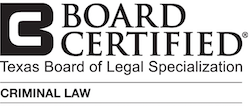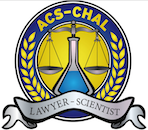House Bill 3016 - Texas Record Sealing Law
Texas Governor Greg Abbott signed House Bill 3016 into law on June 15, 2017. This law went into effect on September 1, 2017. This new piece of legislation will also be retroactive – which means that individuals may benefit from this new law regardless of the date of offense and/or date the plea was entered. Specifically see Government Code, Section 411.0716(a) – detailing how this new law will apply to DWI’s committed before, on, or after September 1, 2017.
Personally, I would never have thought the State of Texas would have passed such a beautiful law for the individual accused and convicted of DWI. However, this new law significantly changes the landscape for the ability of individual to clear their arrest record after a conviction for DWI. The law will now allow, in limited circumstances, for one to file for an “Order of Non-Disclosure,” which would effectively seal their record from public view.
House Bill 3016
Fortunately, the recent legislation passed by Texas lawmakers under House Bill 3016 will significantly expand the opportunity for those convicted of a DWI to petition the court for Non-disclosure if certain criteria are met. See Texas House Bill 3016, Government Code 411.0731, for a full description of the new law and how it applies. (https://legiscan.com/TX/text/HB3016/id/1620128).
HB 3016 allows for relief for many Texans following a conviction of a DWI. Certain criteria must be met – but if one is eligible, one can file a Petition of “Non-Disclosure” to seal the arrest and conviction from public view. This is a landmark piece of legislation, and I am personally elated that our elected officials took proactive steps to recognize how a simple misdemeanor arrest and conviction for a charge of DWI can have lasting repercussions.
What is a Non-Disclosure?
An “Order of Non-Disclosure” is an avenue available for some individuals to seal their arrest record from public view, most commonly after successful completion of “Deferred Adjudication.” In effect, it is a signed Order from the court directing certain relevant entities, that have information pertaining to criminal backgrounds, to seal the record and to not disclose any information to 3rd parties. It should be noted that it is distinguishable from an expunction. An Order of Non-Disclosure effectively shields criminal history information from public view. An Order of Non-Disclosure prevents the general public from viewing your criminal history. It has almost always been our advice to file an Order of Non-Disclosure – even before HB 3016 – as soon as you are eligible to do so. If one does get an Order signed – it can drastically benefit an individual in countless ways. For example, it would “seal” arrest records from many potential employers when someone is applying for a new job, as well as apartment complexes from having this information when one is filling out an application to rent an apartment or a house, etc. There are exceptions for when and if someone is eligible for a Non-Disclosure, including certain applicable waiting periods.
When Can I Apply for a Non-Disclosure?
Generally speaking, the date for when an individual can file for a Non-Disclosure varies based on the type of the offense, and whether the underlying case was a Felony or a Misdemeanor. Some misdemeanors do not have a waiting period before one can file a Petition of Non-Disclosure with the Court (after successful completion of Deferred Adjudication), while some have a 2-year waiting period, and while any Felony for which one would be eligible, has a 5-year waiting period.
Under HB 3016, the waiting period requirements are a bit more tricky and fact specific. One can apply on the 2nd anniversary after the sentence is completed if one successfully complied with all court-ordered conditions AND the individuals was restricted from operating a vehicle equipped with an interlock device for 6 months or more. The most important component to this is it must be court-ordered, and any term that was served with the ignition interlock as a condition of bond would not count use this avenue with the shortest waiting period. If an individual did not have an interlock device on their vehicle as a requirement of the sentence, then the waiting period is 5-years the successful completion of community supervision. If an individual did not actually serve community supervision after a conviction for a DWI, but did have ignition interlock for a period of at least 6 months that was imposed with the sentence, the waiting period is 3-years from the date the plea was entered. See Government Code 411.0736(f)(1) -http://www.legis.state.tx.us/tlodocs/85R/billtext/html/HB03016S.htm).
Who is Not Eligible Under HB 3016?
The following factors would preclude one from being able to file a Non-Disclosure under HB 3016 following a conviction for DWI:
- If there is finding of a BAC of a .15 or higher;
- If the offense is a subsequent DWI (does not apply to DWI-2nd, 3rd or more – only to 1st-time offenders);
- has never been convicted of or placed on deferred adjudication community supervision (probation) for any another offense—this does not include a traffic offense (punishable by fine only);
- not successfully completing any imposed community supervision and any term of confinement; • not having paid all fines, costs, and restitution imposed;
- filing before any applicable waiting period has elapsed;
- Additionally, the court will NOT issue an order of nondisclosure if an attorney representing the state presents evidence sufficient to the court that demonstrates that the underlying offense, for which the order was sought, resulted in a motor vehicle accident involving another person (this includes a passenger of the defendant).
Results of HB 3016
HB 3016 makes it easier for persons with certain low-level nonviolent offenses, particularly applicable to those convicted of a 1st time DWI offenses, to seal their criminal history information from public view. Simply put, it allows an effective avenue, that has otherwise been unavailable to Texans in the past, to seal their criminal history information from public view following a conviction for a DWI. It will allow for those eligible to try and obtain an Order of Non-Disclosure, so that these individuals can feel free seek and obtain employment, and thus, be productive members of society, without the anxiety and uncertainty of whether a prior arrest will possibly hinder them in a negative way.
Do You Qualify Under HB 3016?
If you are not sure based on the above whether or not you qualify, please contact The Ceder Law Firm at 214.702.CARL(2275) or 469.2000.DWI(394), and someone can help advise whether you can take advantage of this new area of the law. Our office has completed countless records sealing matters before – from Expunctions, Orders of Non-Disclosures, the Applications for Juvenile Record Sealing. We fully understand the stigma that can be attached to any criminal conviction, including and especially one for a DWI. This is a new and beautiful law – we are encouraging everyone who is eligible to take full advantage of what it offers without delay.
Contact Us Now
Contact our office today to let a legal professional advise you to help determine whether you may be eligible for an Order of Non-Disclosure via HB 3016 to seal your prior DWI from public view. Call our office today at 214.702.CARL(2275) or 469.2000.DWI(394), or by e-mailing us at [email protected].






















